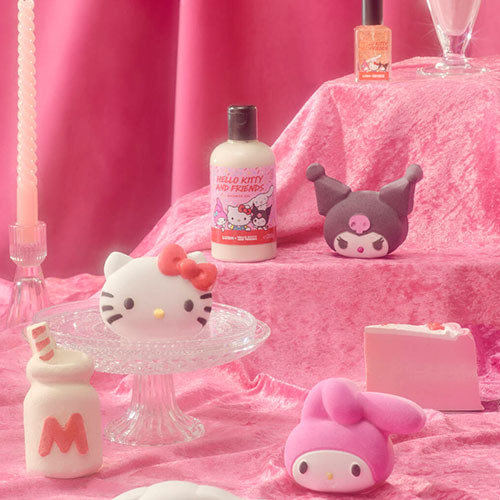Start Licensing’s Ian Downes looks at some examples of how publishing and licensing are happy bedfellows.
The Sunday Times ran a feature this week called ‘Lockdown in Numbers’. Written by fellow Millwall fan Rod Liddle, the feature focused on a range of topics and how these have panned out during lockdown. It was a mixed bag of topics including Relationships, Exercise, Crime and Shopping.
A good news stat is that burglaries are 32% down during lockdown – it is comforting to know that burglars respect social distancing.
The statistics relating to shopping are of particular interest to ‘our world’. Rod got his statistics from a combination of John Lewis, the Office of National Statistics and Majestic. Some noteworthy numbers included flour sales up by 2,000%: I find this an interesting one as during early days of lockdown flour was one of the items that was on the ‘hard to find’ list.
A much reported trend has been that sales of jigsaw puzzles and board games are up – apparently up 240% (I assume year on year) – in March Monopoly and Cluedo were the best selling board games. A vote of confidence in classic brands. LEGO sales were reported to be 300% up.
One statistic that particularly caught my eye was that sales of fiction books were up 33% in the last week of March. It is reasonable to assume that sales of books, magazines and other published formats would generally have performed well during lockdown – of course subject to availability.
Anecdotally I know some magazine companies struggled with distribution and, of course, some core magazine retailers have been closed during lockdown. A good example are travel branches of the likes of WH Smith. Book publishers have had to rely on online sales, although supermarkets have carried on selling books which has been a welcome boost to publishers.
With this in mind I took a look at the publishing sector this week. Publishing and licensing are two business that are intertwined. Rights flow back and forth between the two sectors. Many successful licensed properties started life as publishing properties: Mr Men, Paddington and Peter Rabbit are three good examples. Many publishers have dedicated licensing teams who are responsible for finding rights and publishing licensed ranges. A successful licensed publishing range can be a great boost to a publisher. There are also companies like Centum which specialises in licensed publishing.
My entry point to licensing was through publishing. I got a job to co-manage Copyright Promotions’ publishing business. It was a great start in licensing. It also showed how varied licensed publishing could be. I was involved in projects like developing The X Files publishing programme, while at the same time developing Zig & Zag comic strips.
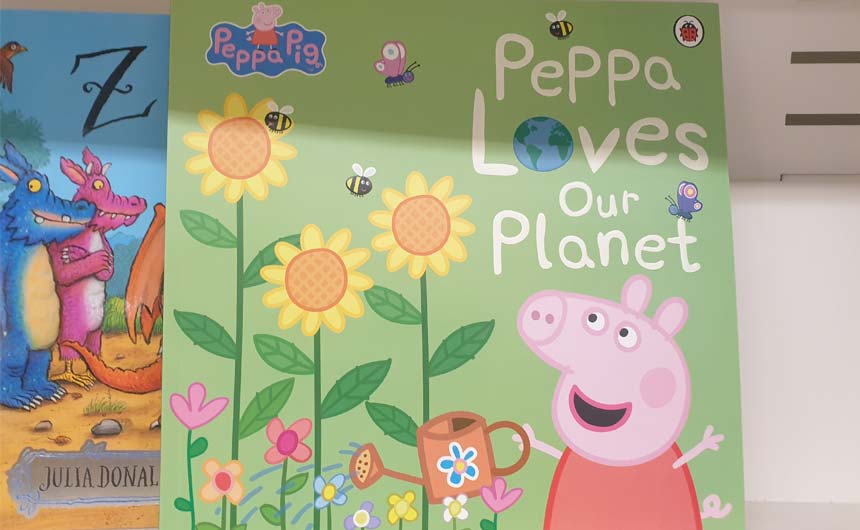
As noted publishers have experienced great success with licensed properties and nurture them well. Probably one of the biggest successes of recent times has been Peppa Pig. Publisher Ladybird has developed a strong range of titles and formats for Peppa. It seems to dip into contemporary topics to keep the publishing topical. I saw one title, Peppa Loves Our Planet for example.
Often publishers will need to build on a licensed property and move on from TV storylines and plots. A property like Peppa Pig has allowed Ladybird to explore a range of topics and formats. In turn this keeps the brand fresh in publishing terms and may also inspire the IP owner to explore some of the themes in other areas of the licensing programme.
Books are also developed with gifting in mind more often these days and publishers are mindful of the fact that they can extend their reach by developing books with the gift market in mind. Publishing can also be an opportunity for IP owners to refresh classic properties and to activate their archive.
Centum Books has developed a line of hardback story books using Disney’s classic characters and stories – for example Mickey and the Beanstalk. This helps breath new life into the characters and gives Centum access to classic characters that should be solid sellers. This is also a format that works well for gifting. Thinking about the trend to take a present to a children’s party, a hardback book based on a classic character is a ‘safe bet’ present but also one that has a high perceived value.
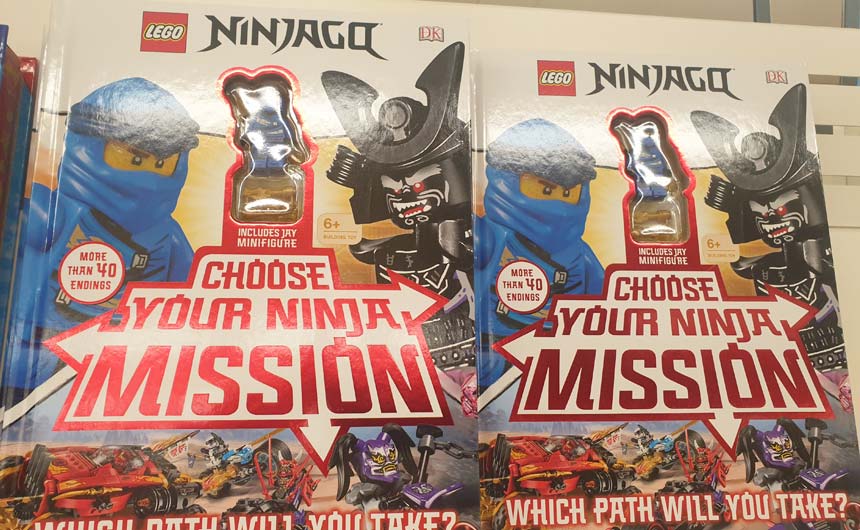
A development in licensed publishing that is worth noting is the move to develop ‘books plus’ – books which include an added value element creating a hybrid between toys and books.
A great proponent of this is LEGO. Its publishing range developed by Dorling Kindersley (might be showing my age as I think everyone calls it DK these days) includes a line of Ninjago Adventure Books which come with a mini figurine, while Disney has a range called Stuck on Stories which include suction cup toys, board game and a book.
I think this is a style of publishing that has good growth potential for licensing and it could also open up some ‘licensing out’ deals for publishing properties as a stepping stone into board games and jigsaw puzzles.
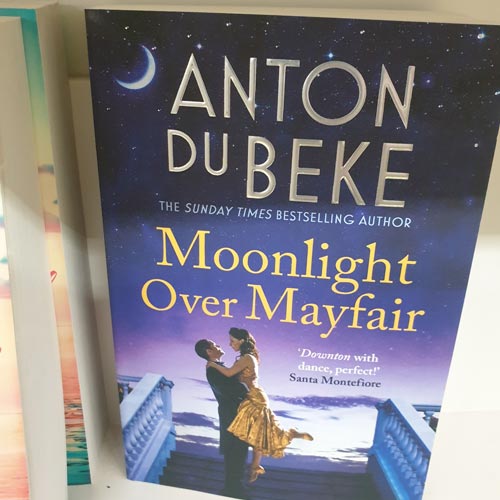
While not strictly licensing, it is interesting to see how publishers dip into the ‘celebrity brand’ market to find new authors and ideas. In this context the celebrity is very much a brand and I presume chosen for the consumer following they have and their potential to be developed as a publishing franchise.
I noticed that Strictly Come Dancing professional Anton Du Beke has a second career as an author, while in the children’s publishing space David Walliams continues to be a shining star. In the case of David Walliams, his book publishing programme has inspired a licensing programme which reinforces the point that successful publishing can inspire a licensing programme.
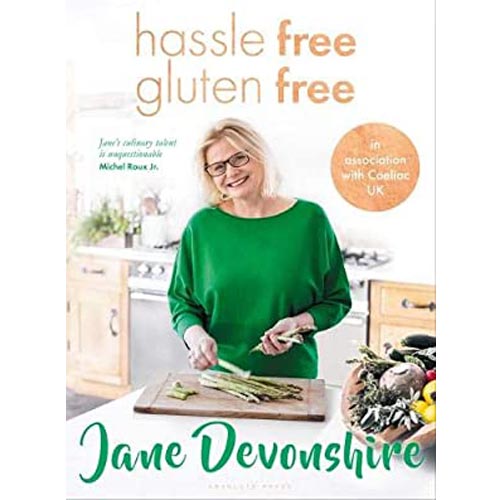
Recipe books is an area that relies heavily on celebrity chefs and it is a well followed path for chefs to move into publishing. This is often the first step to other licensing activities.
An interesting development within this genre are books written by chefs but produced in association with charities. For example, my client Jane Devonshire’s book Hassle Free Gluten Free was developed in association with Coeliac UK. This kind of link gives books like this increased authority and for the charity is an enhanced way of getting their messaging across.
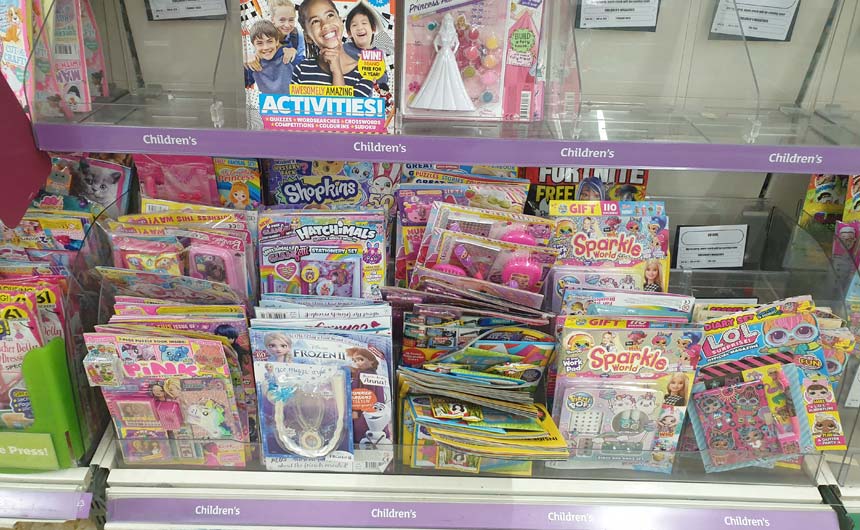
Another part of the publishing world which is licensing heavy is children’s comics and magazines. This is a busy category which has come to rely on licensing. Generally there are standalone titles dedicated to specific characters or compilation titles which feature multiple characters.
In the latter genre, Redan has developed a strong family of brands which act as a home for a range of characters including the Fun to Learn series and Sparkle World. This kind of publishing provides IP owners with an opportunity to test the waters for the category and to build up an asset bank. For readers the formats are attractive, not least because of the variety of content and the added value elements like stickers.
Covermounting ‘free gifts’ on comics and magazines is still a popular promotional technique, but it is an area that all publishers are reviewing and one can expect a move to more sustainable covermounted items – for example mini books or other re-useable items. Because it is such a busy fixture cover design and cover gifts are very important – popular characters can be a good salesforce but a challenge is how you standout in a crowded space.
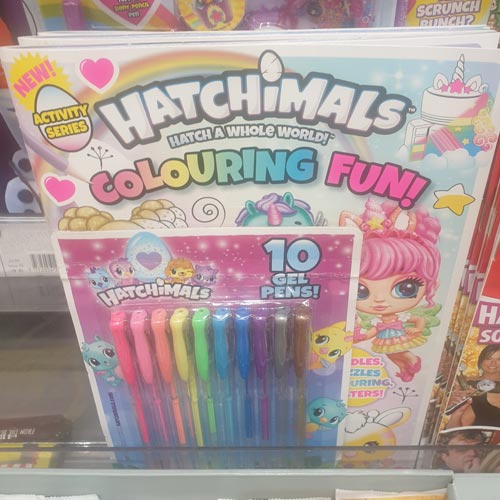
In recent years there has been a move to enhanced shelf fixtures with titles using branded shelf dispensers. I am guessing this sort of display costs but publishers must feel it works. There has also been a move to more arts and crafts titles in this category recently as well. For example, I noticed a Hatchimals Colouring Fun title being sold alongside the regular Hatchimals magazine. This is not something confined to the children’s category as many of the handicraft magazines on sale these days include character-based projects and cover mounts, while I have recently been working with publisher Anthem on a range of Aardman character adult colouring magazines.
Marketed under the Colouring Heaven brand, the first of these titles featured a compilation collection of Aardman characters. It has been on sale during lockdown and has done well. It is now going to publish two follow up titles dedicated to Shaun the Sheep and Wallace & Gromit. It is encouraging that there are new opportunities emerging in the publishing category.
Returning to Rod Liddle’s Stats Festival and thinking about the current trend for online pub quizzes, here are a few stats you could use for quiz questions: sales in rosé wine were up 50% and sales in sherry were up 76%. Cash withdrawals from cashpoints were down 60% and sales of hair clippers were up 160% … that’s enough stats for today. I am going to sit in the shade somewhere and colour in my Aardman colouring magazine. It is still work.
Ian Downes runs Start Licensing, an independent brand licensing agency. His Twitter handle is @startlicensing – he would welcome your suggestions for what to look out for.


























